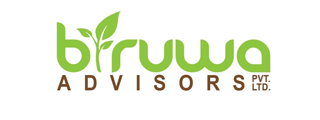Building resilient businesses: Lessons from 2020
The past year has shown us that transitioning business models to adapt to the “new normal” was vital for survival during the COVID-19 pandemic. Now, as vaccines roll out and we enter a new phase, businesses are shifting focus toward recovery and continuity. Some activities may have changed irreversibly, while others will need restoration or revamping.
Looking back, change and adaptability were key factors in ensuring business longevity throughout 2020. But what does this next stage look like?
Many organizations have moved beyond crisis management and are now focused on recovery and business continuity. Here are four major approaches to reflect on that may help your business better adapt to ongoing risks in this dynamic environment.
1. Revisiting Business Plans
The first step might be revisiting your business plan. The COVID-19 pandemic drastically altered many aspects of the business environment, disrupting existing procedures, demand, and supply patterns.
Under these new conditions, many business ideas may no longer be relevant or may require significant revamping. It’s important to reconsider consumer behavior and preferences, pricing strategies, delivery and logistics, scale of operations, and more.
Planning and documenting these changes through an updated business plan can help pave a clear way forward.
2. Pivoting Service and Product Offerings
Alongside revisiting your business plan, the uncertainty of the current environment calls for backup plans to improve your chances of survival and growth. Having a Plan B—or even Plan C—can make a significant difference.
Because demand for particular services may fluctuate rapidly, exploring alternative offerings or expanding your current product or service range could ease your return to growth.
For example, during the lockdown, Daraz, an e-commerce platform in Nepal, partnered with a leading grocery store to deliver essential goods. Similarly, Foodmandu expanded its service to include fresh vegetable delivery along with food, ensuring continuity when their original services faced challenges.
Using tools like the Business Model Canvas can help assess the viability of pivoting strategies. Who knows? You might discover a more lucrative or sustainable business model in the process.
3. Reassessing Operations Management
Some businesses thrived during the pandemic due to flexible, efficient, and system-driven operations. Others struggled to respond and adapt.
If your business faced difficulties, it might be time to reassess and build a more resilient operations model.
Reviewing your operations can improve efficiency by standardizing processes and building capacity throughout your organization, ultimately boosting overall productivity.
Conducting organizational assessments to identify pain points, gaps, and areas for improvement can help develop the right action plan. This can minimize the impact of future disruptions like COVID-19 on your business growth.
4. Re-Planning Finances
The pandemic had a major impact on many businesses’ financial health, making former financial plans obsolete or in need of revision.
This situation underscores the need for proactive financial risk assessment and re-planning.
With updated business plans, budget allocations may shift, and financial resources may need to be redistributed across different areas.
Careful planning and execution of these financial changes are essential for success.
A robust financial model will support strategic decision-making by providing a clear picture of your current financial status and setting future targets.
At Biruwa Advisors, we aim to help businesses better adapt to the changing world under and post-COVID-19. Our expertise includes research, business plan development, operations management, and financial analysis.
If you need assistance or simply want to discuss your plans, feel free to reach out. We’re also proud to offer free one-to-one mentorship sessions as part of our CSR initiative, where entrepreneurs can discuss their ideas and gain an independent perspective from our experts.
